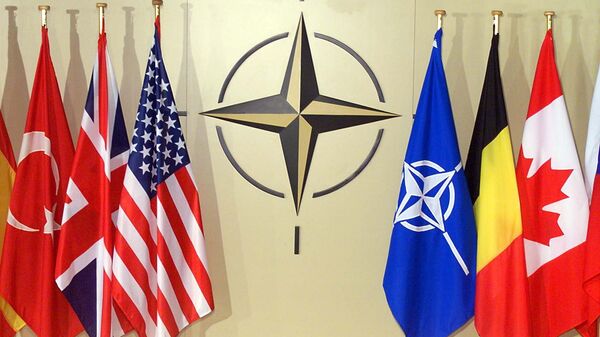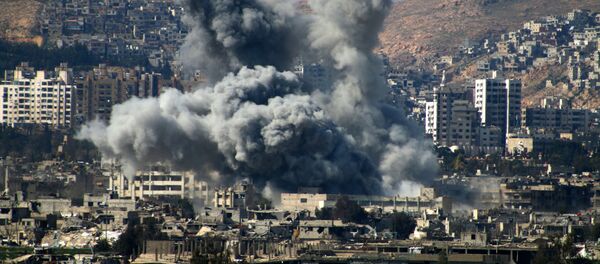MOSCOW (Sputnik) — The statement comes after NATO Secretary General Jens Stoltenberg said that NATO's decision to join the US-led coalition against the Daesh terrorist group does not envision the alliance taking part in combat operations.
"If they [NATO] really have the goal to fight terrorism and unite in that regard. If they have any other political agenda or tasks, then this can call everything in question," Gatilov said.
He pointed out that the Russian goal was to unite various states in order to fight Daesh and Jabhat Fatal al Sham (al-Nusra Front) terror groups, both outlawed in Russia.
"In this regard we have already called for the cooperation, creation of a broad coalition," the Russian deputy foreign minister added.
NATO is not formally a member of the US-led coalition, which, however, includes a lot of the alliance's member states. The bloc is also carrying out capacity-building mission in Iraq, training Iraqi forces fighting Daesh.
"We submitted a draft resolution, but there is no specific discussion yet, as we assume that other negotiations formats need to be considered in this aspect, in particular the possible upcoming meetings in Astana, and then judging by that we shall see how things stand with the resolution," Gatilov told reporters.
On May 4, Russia, Turkey and Iran signed a memorandum on the establishment of safe zones in war-torn Syria as part of the the Astana talks on Syrian settlement. The four zones include the northwestern Idlib province and parts of the neighboring Latakia, Hama and Aleppo provinces, the north of the central Homs province, eastern Ghouta near Damascus and certain parts in the country's southern Deraa and Quneitra provinces. The memorandum on these de-escalation zones took effect on May 6.
The deal was discussed earlier this week during talks between Russian President Vladimir Putin and his Turkish counterpart Recep Tayyip Erdogan in Sochi.





